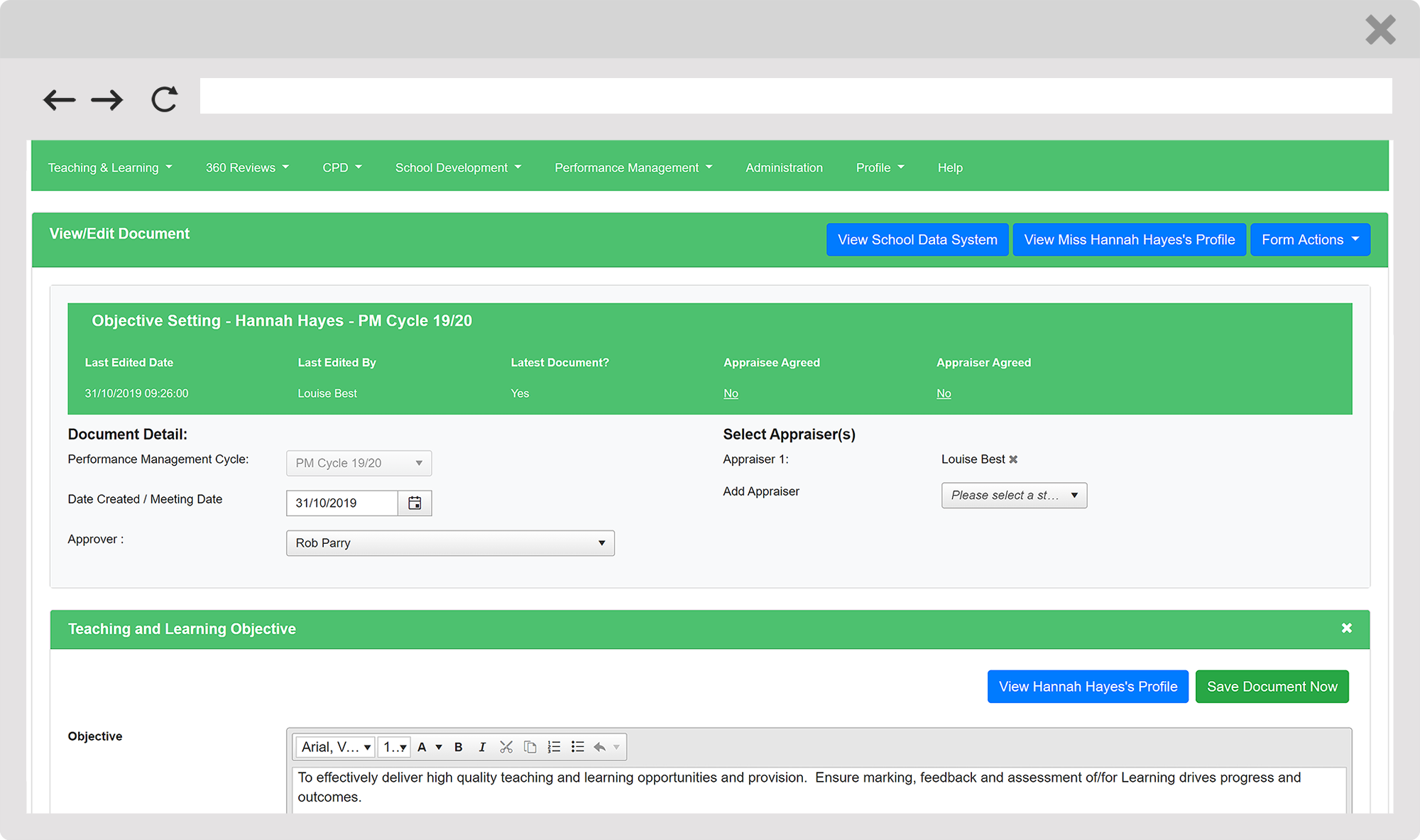Special Schools dedicate so much time and resource to ensuring their provision truly meets the…
The Changing Process of Performance Management in Schools
Objective Setting is Changing
Talking to our partner schools in England and Wales it is becoming clear that many schools are moving away from very specific and narrow quantitative, target-based objectives and towards objectives that are more aligned to the whole school objectives of delivering the best education possible to all pupils.
Percentage targets for particular groups of pupils in particular tests have proved to be difficult to set fairly as often the results are not solely within the control of teacher being appraised. They are often dealing with the teaching legacy the pupils have received in previous years or other contextual factors arising in particular cohorts that make simple percentage-based objectives at best unreliable and at worst meaningless. In many schools this approach has meant that staff who narrowly focus on their objectives are successful whilst those that work more widely to develop their pupils, perhaps the school’s best teachers, fail to get properly recognised.
There seems to be a trend towards broader but still measurable objectives. These objectives may be reviewed against a range of evidence, some quantitative (test or exam results) and some qualitative (e.g. specific action and impact, colleague feedback, etc).
By their nature these wider objectives tend to be more developmental for the individual and can also be more clearly tied into the school’s improvement plans. Performance management conversations become future focused with opportunities identified for better professional learning, collaboration and training. More rounded performance management processes will lead to more involved staff members and thus greater development across the school. Setting objectives in this way would also be more in tune with the current Ofsted focus on curriculum and personal development rather than just data.
5 Tips for a Successful Performance Management Process
1. Put yourself in a coach rather than critic mindset
This should lead to future looking, developmental conversations.
2. Listen hard, talk less
Line managers tend to do most of talking in objective setting and review meetings.
3. Make objectives simple but clear
Don’t over complicate but make sure the member of staff understands (by example) how their performance will be reviewed.
4. Don’t save it up
Feedback is best give close to the event, good or bad, so long as it is in a considered fashion.
5. Viewed in the round
The review must consider the objectives but seek to deal with staff on the basis of their overall development.
Lessons Learned
Lessons Learned is an online system that supports well-structured staff objective setting and review.
Using the system, you can easily answer questions such as:
- Are the objectives set for our staff fair?
- Are timely review meetings being held?
- Which staff have yet to begin the appraisal process?
- In which areas are staff struggling to meet their objectives?
If you’ve already started your performance management process for 2019/20, our friendly UK support team can help you get everything transferred onto Lessons Learned.
To find out more, visit our dedicated website here:
https://lessonslearned.com/lessons-learned-system/staff-appraisal-and-development/

